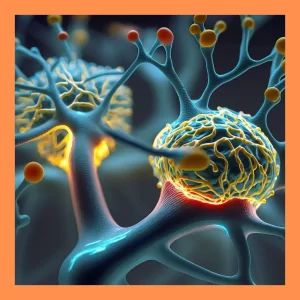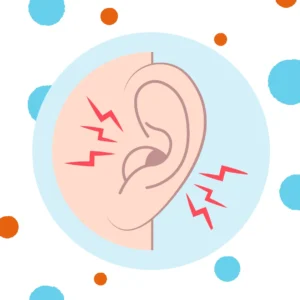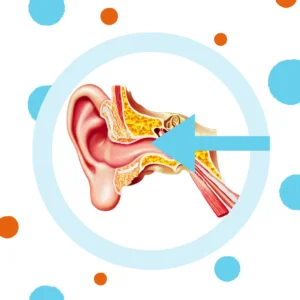
Resound Vivia 9 vs. Signia Pure Charge&Go IX 7
Picture this: two heavyweights of the hearing aid world step into the ring. One wears sleek Scandinavian design and a brain-like chip. The other brings
Home » The Lifesaver in Your Ears: Unveiling the Connection Between Hearing Aids and Longevity

If you think hearing aids only help you hear better, think again! Recent research shows a fascinating link between hearing aids and longevity. Yes, those tiny devices do more than make conversations clearer—they might even extend your life!
Table of Contents
ToggleStudies have revealed a direct connection between wearing hearing devices and living longer. According to a 2024 study by the University of Southern California, hearing aid users showed lower mortality rates than non-users. Adults with hearing loss who regularly wore hearing aids had a 24% lower risk of early death.
Now, that’s a stat worth listening to!
The exact reasons behind this connection aren’t fully understood, but there are strong possibilities:
Not wearing hearing aids can hurt your brain. Untreated hearing loss can lead to cognitive decline, memory loss, and even dementia. Why? Because when your ears don’t hear, your brain doesn’t get enough stimulation. Hearing aids help keep your brain sharp by feeding it the sound it craves.

The brain’s ability to change and adapt—known as neuroplasticity—is central to understanding how hearing aids improve brain health. When someone experiences hearing loss, the brain undergoes a shift in how it processes sound, reallocating areas originally dedicated to hearing for other functions like vision. This reorganization can negatively impact how you process speech and sound, particularly in noisy environments. Without consistent auditory input, the brain’s ability to manage sound signals deteriorates over time.
When the brain receives less auditory input due to hearing loss, other senses start to take over the auditory cortex, the part of your brain responsible for processing sound. Studies have shown that even mild hearing loss can cause this area to be recruited by other senses, like vision. This cross-modal plasticity leads to challenges in processing speech, particularly in loud or crowded settings.
Moreover, without proper stimulation, the brain begins to reallocate resources. For instance, when hearing loss forces you to strain to understand conversations, your frontal lobe—the part of the brain responsible for memory and executive function—takes on more of the listening load. This cognitive overload means less brainpower for other tasks, making it harder to remember conversations or focus on different mental tasks. Over time, this can contribute to cognitive decline.
But here’s where hearing aids come to the rescue!
When you wear hearing aids, you give your brain the auditory stimulation it needs to prevent this harmful reorganization. By consistently delivering sound, hearing aids activate the auditory cortex, keeping it engaged and preventing other senses from taking over. This helps preserve your brain’s natural ability to process sound and speech accurately.
Using hearing aids not only stimulates the auditory cortex but also reduces the cognitive strain involved in listening. With clearer sound input, your frontal lobe is free to focus on tasks like memory retention and problem-solving, rather than simply deciphering speech. MRI studies show that people who wear hearing aids have a slower rate of brain tissue loss compared to those with untreated hearing loss.
Regular use of hearing aids can help reverse the changes caused by hearing loss and support the brain’s adaptability. Consistent auditory stimulation strengthens the neural pathways related to hearing and language processing, helping to maintain cognitive functions and slowing the progression of conditions like dementia. In fact, individuals with untreated hearing loss develop cognitive decline 3.2 years sooner than those with normal hearing.
Find out if you should think about AirPods vs. hearing aids.
Hearing aids do more than just improve hearing—they’re key to supporting a vibrant, active lifestyle as you age. Let’s explore how hearing aids can keep you moving, connected, and engaged so you can truly enjoy your golden years.
One of the biggest challenges with hearing loss is feeling disconnected from the world. Conversations become difficult, and social gatherings can feel overwhelming. Hearing aids break down these barriers, allowing you to engage confidently in conversations and enjoy social activities. Staying socially active is essential to maintaining mental health; hearing aids make that possible. They help prevent the isolation often associated with untreated hearing loss, keeping you connected to family, friends, and your community.
Hearing well isn’t just about conversations—it’s also about staying safe. Poor hearing can cause you to miss important auditory cues, like approaching vehicles, warning sounds, or even someone calling your name. This lack of awareness can lead to accidents, especially falls, a major risk for older adults. Hearing aids improve your ability to detect these sounds, helping you navigate your environment safely. By reducing the risk of falls and accidents, hearing aids promote physical well-being and independence.

As mentioned earlier, untreated hearing loss has been linked to faster cognitive decline. The brain works overtime to make sense of unclear sound signals, using resources that should be reserved for memory and problem-solving. This effortful listening can wear down your mental stamina and impact cognitive function over time. Hearing aids reduce this strain by providing clear sound signals, keeping your brain engaged in the right ways and preserving cognitive health. This supports clearer thinking, better memory retention, and a sharper mind as you age.
Hearing loss can make you hesitant to engage in physical activities. Whether it’s a group fitness class, walking club, or family outing, fear of missing important sounds can make you feel left out or unsafe. Hearing aids restore your confidence by improving your awareness of the sounds around you. Knowing you can hear important cues and instructions, you’ll feel more comfortable participating in physical activities. Whether you’re cycling, hiking, or simply taking a walk in the park, hearing aids ensure you remain fully present and safe.
Independence is one of the most important factors in aging gracefully. Hearing aids play a huge role in maintaining that independence. When you can hear well, you’re able to manage daily tasks, engage with others, and make decisions confidently. You won’t need to rely on others to repeat things or help you interpret situations. Whether it’s handling phone calls, hearing the doorbell, or keeping up with conversations in public places, hearing aids empower you to live independently and stay in control of your life.
Hearing aids aren’t just for improving your ability to hear—they’re essential for living an active, healthy, and fulfilling life as you age. They support social engagement, cognitive health, safety, and emotional well-being, all contributing to a better quality of life.
Hearing aids truly can be lifesavers for adults with hearing loss. They support brain health, prevent accidents, and keep you socially active—crucial ingredients for living a long, healthy life. Don’t wait to start reaping the benefits of hearing aids. Contact Injoy Hearing today to discover how hearing aids can boost your hearing, health, and happiness!

Picture this: two heavyweights of the hearing aid world step into the ring. One wears sleek Scandinavian design and a brain-like chip. The other brings

You’re lying in bed, drifting off, when suddenly your ear decides to audition for the marching band. A rhythmic whoosh, throb, or pulse syncs perfectly

Picture a blockbuster face-off: Iron Man vs. Captain America, or Batman vs. Superman. Now shrink it down to your ears. On one side, you’ve got

Let’s face it: some ears are the penthouses of hearing real estate, while others are the studio apartments with a kitchenette crammed in the corner.
Injoy specializes in crafting custom Phonak hearing aid solutions tailored to the unique hearing needs of our patients. With a team recognized as the best in the business and decades of experience in helping people nationwide, we’re dedicated to improving your hearing and, consequently, enhancing your quality of life.
To start your journey towards better hearing with confidence, Injoy is proud to offer a 30-day risk-free hearing aid trial. This allows you to experience the difference our Phonak hearing aids can make, ensuring they meet your expectations and fit your lifestyle perfectly.
Improve your hearing and improve your life today by contacting Injoy to learn more about our risk-free trial!

Need hearing aids? Explore our range of hearing aids and discover the best option for your lifestyle and Unique Hearing Needs.
Are you a current patient with us? We're here to help with any adjustments, repairs, or support you may need.